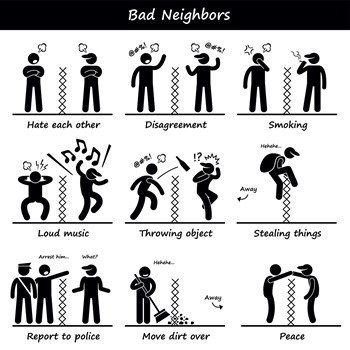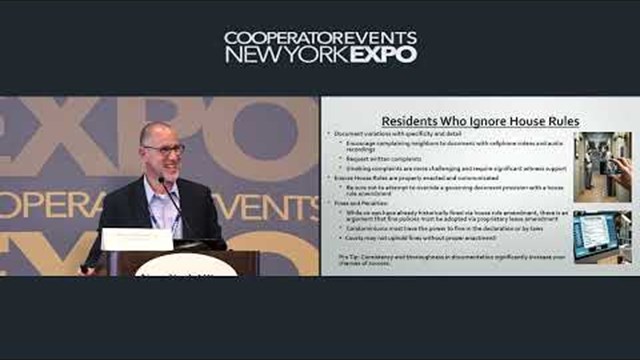
Q. I live in a senior cooperative with 102 units. Occasionally we have quality of life issues. For instance, someone has been opening a window (even in the cold, cold winter!) and blasting music out, sweeping balcony debris onto the common sidewalk below, parking in an unauthorized space which blocks the handicapped ramp, or excessive noise early in the morning.
We initially spoke with the offending resident. When that failed, letters from our board and our managing agent also failed. Our managing agent has advised that our only recourse is fining individuals who blatantly and deliberately ignore our rules.
Any suggestions on how to handle this type of resident?
—Frustrated Senior
A. “Unfortunately, there is little a board can do, short of fining or initiation of litigation to contain the conduct of a recalcitrant shareholder who remains impervious to persuasion or peer group pressure to comply with the house rules,” says Bruce Cholst, attorney with New York City law firm Herrick, Feinstein. “What’s more, unless your cooperative’s proprietary lease or bylaws explicitly authorize imposition of fines for house rule violations, fining is not a legally enforceable remedy. (Fining authorization in the house rules only is insufficient).
“I typically suggest a letter from the managing agent as the first resort in approaching a recalcitrant shareholder over his rule violations. If that fails, I suggest a verbal overture by the property manager. Engaging the shareholder in direct conversation often leads to dialogue which successfully addresses the situation. In this dialogue the property manager should stress that there is a rationale behind the particular rule in question and explain what it is, thereby demonstrating that the board is not being arbitrary or capricious in making an issue of the violation. This often abates the shareholder’s underlying resentment and induces compliance.
“Should the verbal overture fail, I typically suggest denying the shareholder access to building amenities, such as common recreational facilities. However, this coercive step should not be taken without consulting counsel, as there are legal implications in resorting to this remedy.
“If the shareholder remains recalcitrant, I would consult the proprietary lease and bylaws to see if these documents contain the requisite authority to impose fines. If they do, I would levy this sanction. If fining fails, you should consider resorting to litigation.
“In your case, the written overture has apparently failed, so I would have the managing agent proceed with a verbal approach and then consider the other steps I have suggested.”









Comments
Leave a Comment